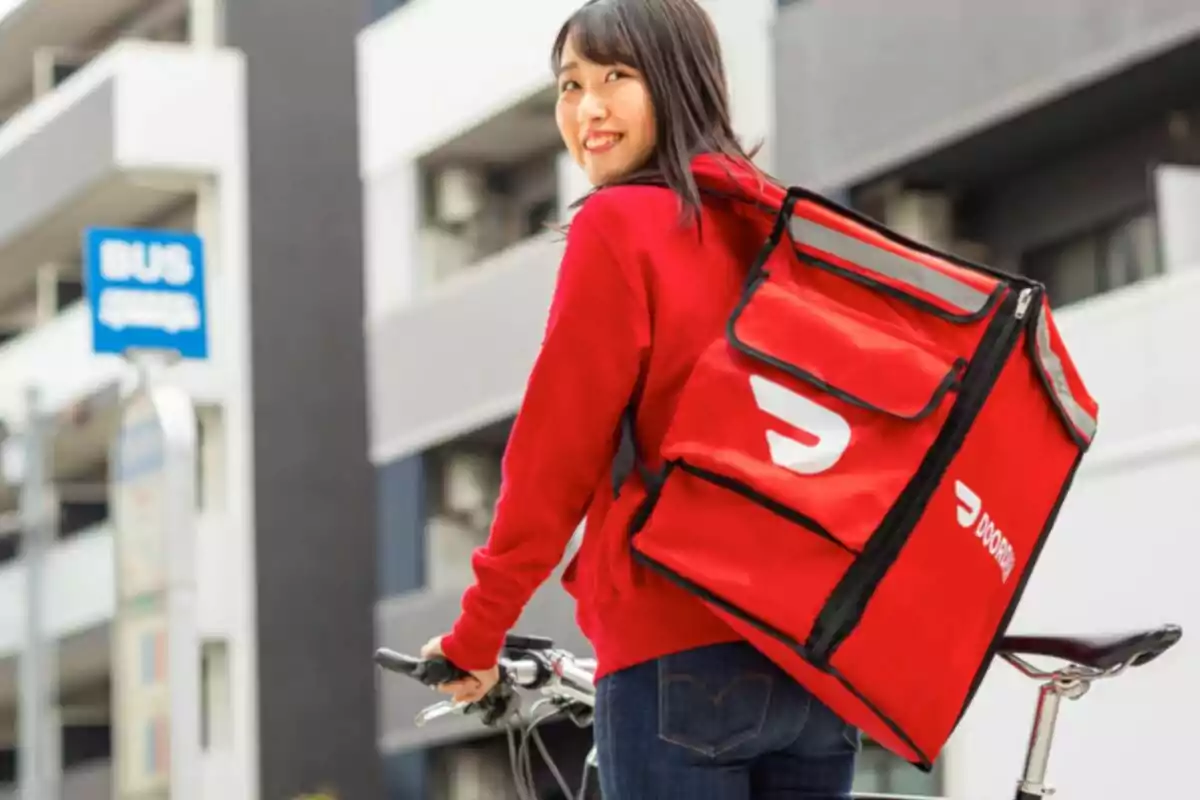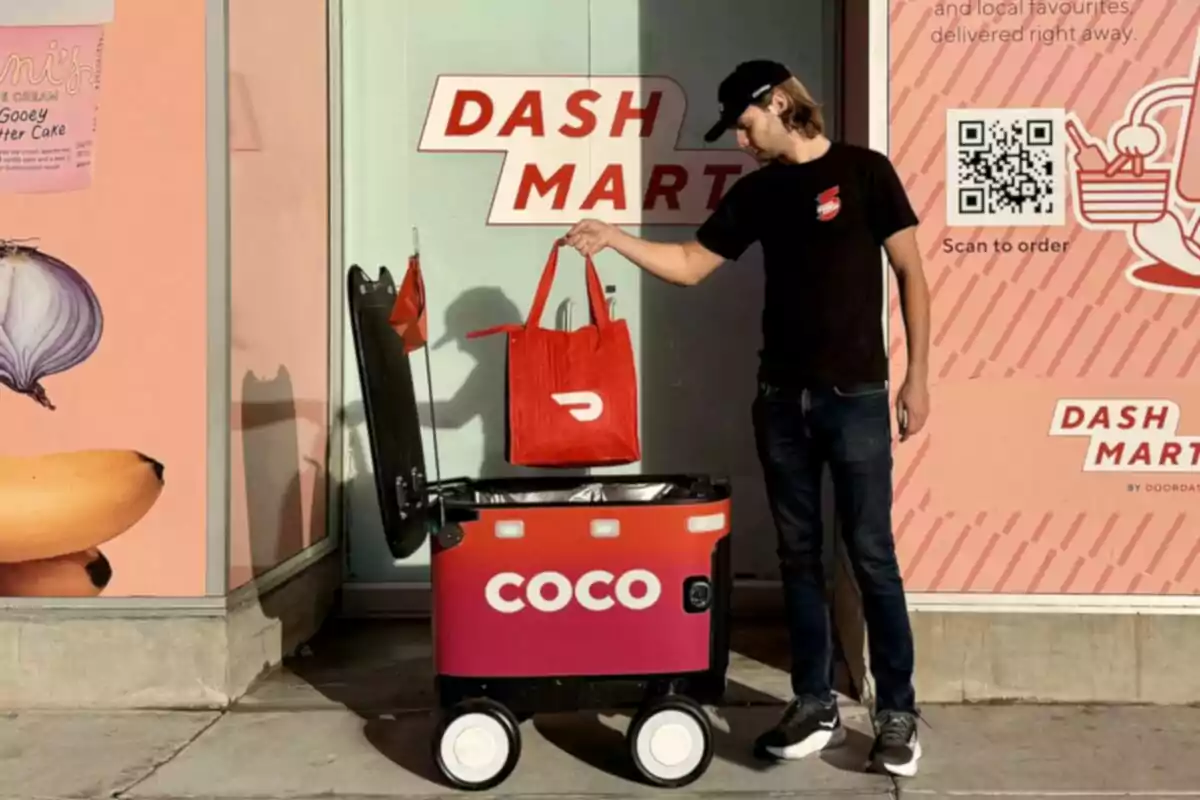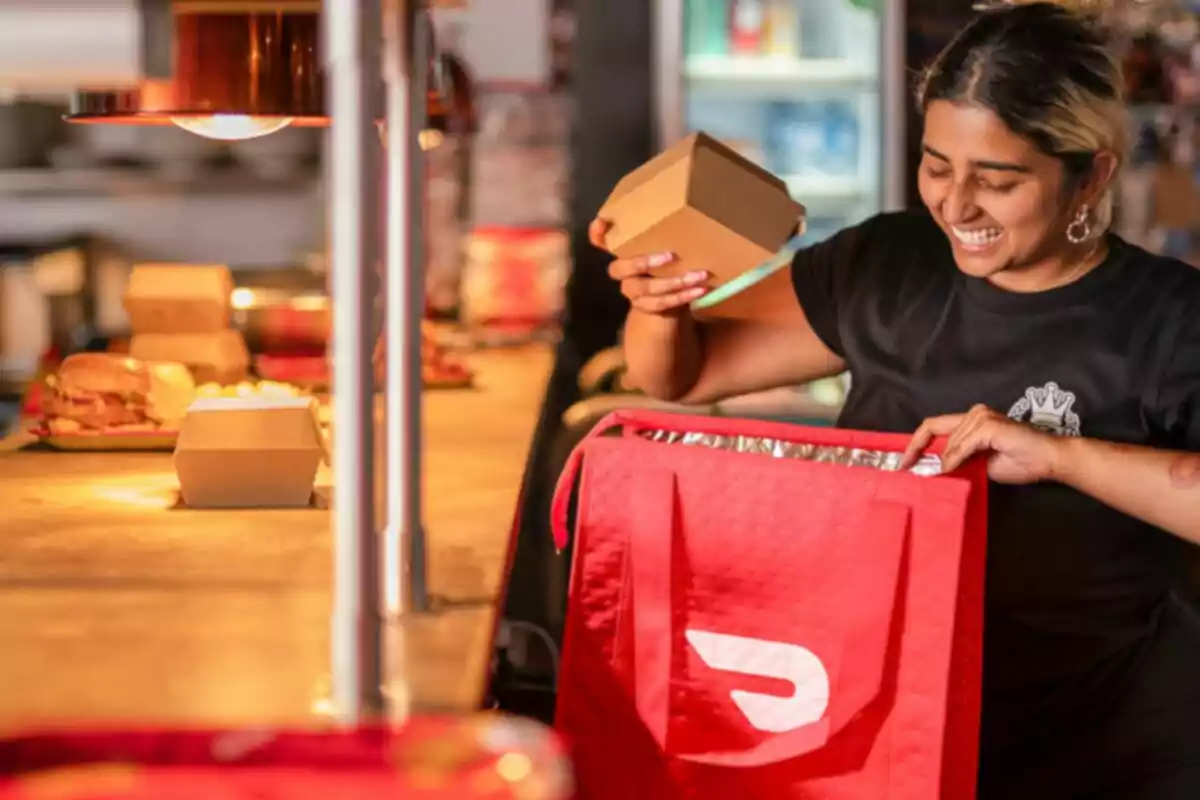The competition among delivery services in the United States is relentless, and the strategies to stand out are increasingly creative. DoorDash, one of the leading platforms in this sector, has just taken a step that could mark a turning point. Although it's not the first time it has surprised with new initiatives, this move has especially caught attention.
This time, the company has opted to implement a technological solution that calls into question the traditional delivery model. The announcement, released last Thursday, April 10, could have direct repercussions on its closest rivals. Among them, Uber Eats could be the most affected by the unexpected novelty.

DoorDash Incorporates Sidewalk Robots
DoorDash has begun offering an unusual option to all its users: choosing whether their order will be delivered by a person or by a wheeled robot. The company has partnered with Coco Robotics to launch this new system, which is already operating in cities like Los Angeles and Chicago. These are small autonomous vehicles, box-shaped, that travel on sidewalks without generating emissions.
These robots are not completely independent, as they are remotely controlled by human operators. Even so, they have managed to complete more than 400,000 deliveries, successfully navigating the challenges of urban traffic. Coco has a fleet of over a thousand units, allowing them to operate on a large scale and collaborate with hundreds of restaurants.

One of the main attractions of this technology is the economic savings. According to DoorDash data, restaurants can reduce delivery costs by up to 50% by using robots instead of human couriers. This detail is significant, especially in an increasingly competitive market that demands tight profit margins.
Criticism, Obstacles, and a Battle That Has Just Begun
The arrival of these robots has also sparked a wave of criticism. In cities like New York or San Francisco, they have been banned, being considered a threat to pedestrian mobility and traffic flow. Additionally, some citizens have shown hostility, obstructing the devices' path or even physically attacking them, according to Mundo Deportivo.

Another sensitive point is the labor impact. The automation of deliveries has raised concerns among those who see their jobs as couriers at risk. Coco and DoorDash insist that their intention is not to replace but to complement traditional delivery methods with more sustainable options.
"Not every delivery requires a two-ton car," stated Harrison Shih, senior director of DoorDash Labs, defending the multimodal model. The collaboration with Coco aims to expand the reach of deliveries in a more ecological and efficient way. Meanwhile, Uber Eats will have to respond quickly if it doesn't want to fall behind in this technological race.

